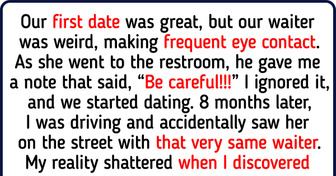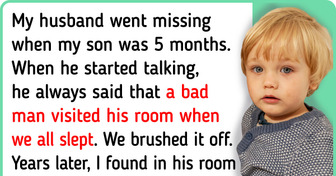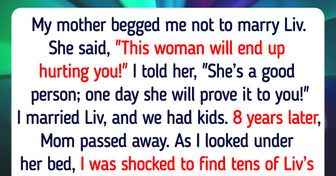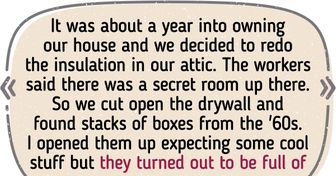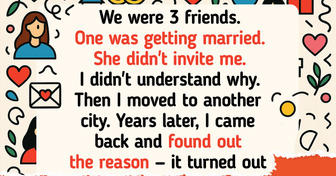18 Rich People Who Lost It All and Had to Find a Way to Make Ends Meet
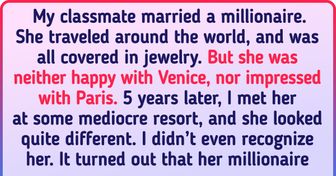
Strange people are everywhere around us. When meeting people who wash their hands 100 times a day or obsessively collect trash, we automatically start to worry about them. The thing is, cute — and sometimes not so cute — oddities and harmless habits can actually be hidden psychological disorders that require serious treatment. Would you be able to differentiate a person suffering from a mental illness from someone who’s simply eccentric?
Bright Side has investigated medical literature and learned more about differences between oddities and psychological illnesses.
Having a bad memory when it comes to faces isn’t necessarily a rare thing. After all, we meet so many people during our lives that not remembering some of them is quite normal. Additionally, the ability to recognize faces depends on one’s age — our brains require some time to develop the ability to remember and recognize the facial features of an interlocutor. Ages 30-34 are the best for this — therefore, perhaps your time is yet to come.
Prosopagnosia or face blindness is a disorder where people don’t only fail to remember the faces of their acquaintances but their brains simply can’t recognize them at all. Instead, people who have this disease develop alternate methods of recognizing people — by their hairdo, voice, accessories, etc. Once you change one of these parameters, a prosopagnosic won’t recognize you.
The life goal of a typical whiner is to attract attention to their personality. Moreover, they are good manipulators who are always trying to shift a part of their problems on the shoulders of the interlocutor.
A hypochondriac constantly feels worried about getting sick and is extremely concerned about their physical condition. This person may be aware of not having any serious illnesses but still will persistently search for symptoms.
A neat person knows for sure that there is no one who can clean their home better than they can. Polishing the furniture becomes the meaning of life for these kinds of people. They are extremely pedantic and get seriously offended at family members who scatter their belongings all over the house.
When having OCD (Obsessive-Compulsive Disorder), cleaning something or performing any other repetitive actions (compulsions) is a way to get rid of obsessive involuntary thoughts and ideas. Obsessions can be simple such as a fear of setting fire or even more strange. There once was a case of an OCD patient being scared that he would send his daughter as a parcel one day.
Greedy people find it difficult to say goodbye to their belongings even if they’re not valuable at all. As a result, the balcony of their flat or the backyard of their home overgrows with rubbish that “they might need one day”.
Syllogomania or pathological hoarding is a condition when a sick person collects and keeps unnecessary stuff. The amount of this stuff is so big that it infringes on them having a normal life — they may block the way to home appliances or prevent the closing of doors.
Excessive medical examinations of children for the tiniest reasons may be a manifestation of hyper-care. The anxiety of parents can be dangerous for children because at an older age they can suffer from low confidence as well as a lack of useful life skills.
Munchausen Syndrome by Proxy is more typical for women. People sick with this syndrome artificially cause the symptoms of some illness in their kids or any other people dependent on them. This strange and perverted method helps mothers get the attention and compassion of their surroundings.
If you are a person who can easily get lost in their hometown, it’s likely you are very bad at spatial thinking. This issue is familiar to many people, however, it’s women who suffer from “topographical cretinism” most often. Very often the inability to find their way is an inherited feature.
Topographical disorientation is a neurological disorder in which the patient is not able to navigate in certain conditions.
Very often, the unwillingness to go into public restrooms is due to the feeling of disgust. The fear of picking up E. coli turns out to be stronger than the desire to empty their bladder.
Paruresis (or shy bladder syndrome) is a fear to urinate in public toilets. When there are other people around in a public lavatory, people sick with paruresis get an “alarm” that results in an increased adrenaline level that leads to urinary tract spasms. It’s mostly men who’ve had issues with adjusting to different surroundings as well as issues communicating with the opposite gender in youth that tend to suffer from this disease.
It seems that people who stick to healthy diets have their own “secret society”. Their members know the calorie and nutritional value of all dishes and are able to combine products with health benefits. Moreover, they have a super ability not to gain weight.
Orthorexia is an eating disorder that is characterized by a manic desire to eat only “healthy” foods. People sick with orthorexia dedicate most of their free time to thinking through a healthy diet and feel extremely curious about the health of others and menus.
Many people sometimes feel sad, lonely or unconfident. Usually, a bad mood is the reaction to events happening in life and it passes quite fast.
Depression is a serious psychological disorder. Its main signs are a bad mood or the inability to get pleasure from life.
Fear is an evolutionary mechanism that we need to survive. When we are scared, there is a whole bunch of chemical reactions that take place in our bodies: adrenaline, norepinephrine, and testosterone are injected into the blood. It’s these elements that make people run, scream and have many other reactions.
A phobia is an uncontrollable pathological fear that arises at the thought of a scary situation or object. Unlike an ordinary fear, a phobia affects the psyche negatively — it contributes to the development of neuroses, nervous tics, and depression.
People that are prone to different kinds of worries are considered valetudinary. This innate character trait produces tons of anxiety. Valetudinary people worry about what impression they will have on others, it seems to them that they are never good enough. Generally speaking, valetudinarianism is a lack of self-confidence, suspiciousness, and the expectation of something worse.
Paranoia is a type of psychosis that is characterized by the presence of delusions. Those delusions contradict reality and exist only in the imagination of a sick person. That’s why paranoiacs keep seeking a hidden meaning which is unlikely to exist.
Have you ever met people that have this kind of behavior? Was it difficult to communicate with them? Please tell us about your experience in the comments!

